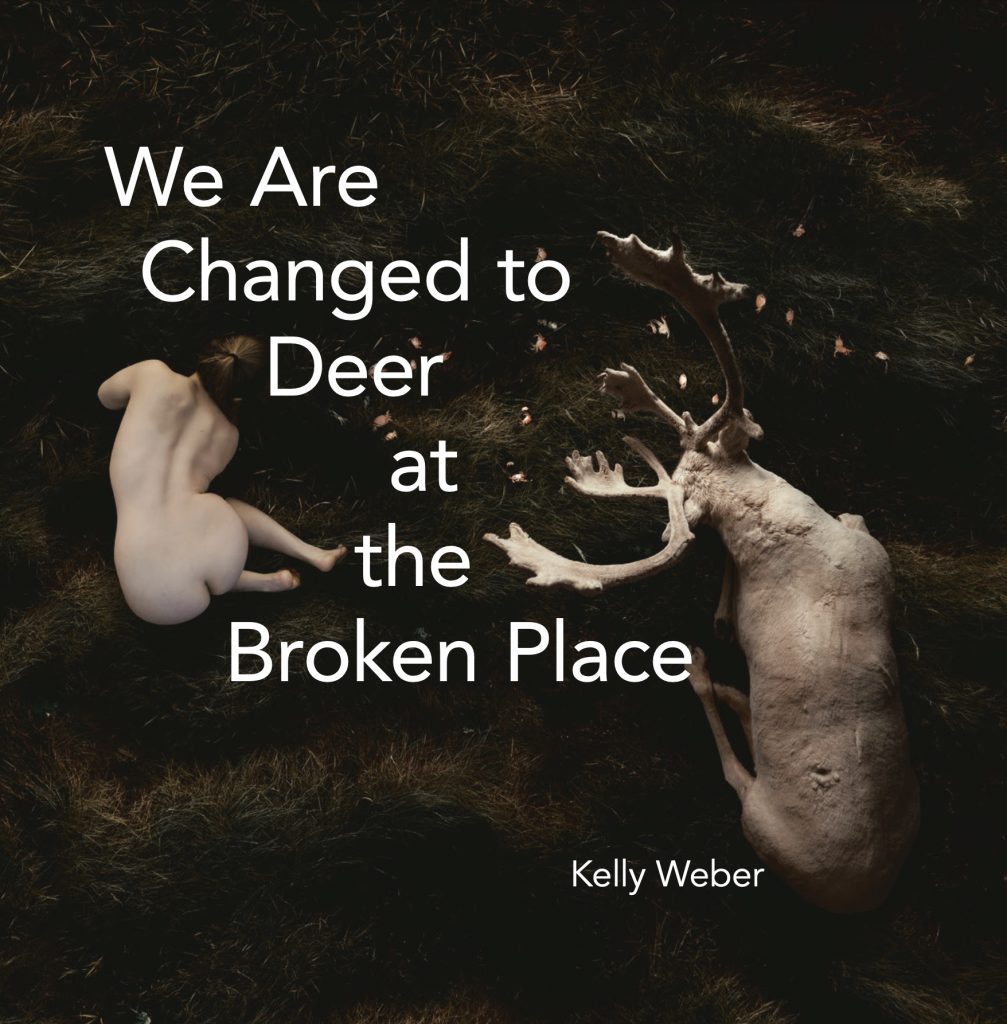Reading Lists
10 Writers Finding Queer Kin in the Natural World
Lucien Darjeun Meadows recommends writing that reaches beyond fixed identity toward fluid forms of being in the world

Being human—especially as defined and policed these days (clearly, only certain humans are granted full rights)—is rarely enough for those of us who find ourselves on the margins. As a queer writer, I often reach toward speaking with and alongside plants, animals, topographies, and atmospheres—my “queer kin,” as feminist philosopher Donna Haraway writes, and, for Rarámuri ecologist Enrique Salmón, my “extended ecological family.”
When I was writing In the Hands of the River, I wondered: what would it be like to love in the body of a flower—perhaps a violet, or a lady’s slipper? What would it be like to move not through or over, but with and among the ecological world? Granted: being able to write openly about queering one’s body is a privilege. For far too long and far too often, those of us outside the dominant (white, male, heterosexual, cisgender, able-bodied) identity have been linked with “nature” to distance us from being fully “human.” We are unnatural, they say; we are primitive, bestial, animal. But I am inspired by feminist anthropologist Val Plumwood’s descriptions of her erotic (sensuous, and sensual) encounters with stones, and by former sex worker and current environmental activist Annie Sprinkle’s identity as “beyond bisexual,” meaning, “I literally make love with … waterfalls, winds, rivers, trees, plants, mud,” and more ecological relatives.
I am inspired by creative writers who model shimmeringly queer and interspecies ways of being with the world. Artist and sex educator Caffryn Kelley says, “Queer is a way of choosing a radical openness instead of a fixed identity.” The writers in this list model an openness to fluidity, to the slippery unknowability of relationships and relating (within and beyond the sexual) that feels essential for finding a respectful, inclusive way of moving with this world—and of moving this world’s humans toward more respect and more inclusion.
Bunny by Mona Awad
The first time I read Bunny, I wasn’t sure (for most of the novel) whether to laugh or scream. If you enjoyed Donna Tartt’s The Secret History, or if you are a writer who might have some workshop trauma, or if you’re just curious about how a group of women might call themselves Bunnies, transform actual rabbits into sexy Darlings, and bring knives to secret workshops, read this book. Not only are Awad’s metaphors sharp (when the Bunnies stare at our narrator and her friend, she sees “their eyes taking us in like little mouths sipping strange drinks”), but I guarantee you’ll never look at a rabbit the same way again.
Slow Lightning by Eduardo C. Corral
Relevant when published in 2012 and still relevant now, Corral’s first poetry collection moves sinuously between English and Spanish without translation and without apology. He pushes language from a cage to a conduit as his speaker witnesses generations of border crossings and trauma. There are moments I cannot forget, like a lover slipping a live canary into his father’s coffin. And, at the same time, Corral captures such erotic gorgeousness. In an early poem, the speaker licks the honey smeared on the hind leg of a deer; toward the end of the collection, his “breath / tightens around him [a lover], / like a harness,” and after tight lines and constant enjambment, “When I ride him at night I call out / the name of his first horse.”
Equus by Peter Shaffer
I slipped Shaffer’s play off a rural library’s shelf, and a few pages in, I was sure some authorities were going to find and punish me for holding this thrillingly homoerotic book. Equus follows a psychiarist’s effort to learn why a teenage boy blinded six horses with a metal spike. As the therapy sessions approach the night of the blinding, the edges between love, worship, and obsession disappear. The boy rides a wooden horse, then a living horse, to orgasm (doesn’t he?). He is led by a girl to a stable for sex, but he cannot stop thinking of his favorite horse. Whether reading or watching Equus, you can’t look away (and you don’t want to look away, do you?).
Freshwater by Akwaeke Emezi
“How do you survive when they place a god inside your body?” Emezi’s debut novel asks, as we follow Ada, an Igbo and Tamil woman, who is also an ogbanje (or a child who must repeatedly die and be reborn). Filled with gods and multiple personalities who largely narrate the story as a collective “We,” Ada moves from a nightmare-wracked childhood to her self-abuse and trauma as a college student, to the devastating takeover of the spirit Asughara, and, ultimately, to Ada’s efforts, with other spirits, to release herself. It’s so refreshing to have a book that doesn’t explore mental illness through the same (white) tropes. Rather, here, even as an “I,” Ada is “a compound full of bones, translucent thousands.”

Our Colony Beyond the City of Ruins by Janalyn Guo
Across these twelve magical stories, Guo weaves a world where touch sparks erotic encounters across species. In the first story, “Bloom,” the narrator follows her aunt’s medicinal work at coaxing plants and mushrooms from men’s backs, “like a milky fur,” and works with her aunt to help these men transform completely into flora. Later, in “Acting Lessons,” the narrator hides in the skin of a leaf, then in the skin of a bird, as she searches for (and runs from) her father. In “The Sea Captain’s Ghost,” a sea captain becomes a mollusk, carried by a man who is his ghost. Guo’s dreamlike stories reinvent the body as a profusion, and the resulting we is wonderfully plural and queer.
Gut Botany by Petra Kuppers
Gut Botany follows one “gender-non-conforming nebula” of a speaker with a wheelchair as they use poetry to move with waterways and environments, reaching toward communion with the environment to resist heterosexism, patriarchy, and ableism. Sometimes, the speaker is an ancient fish with the “fear of being sheared out of the stream.” Sometimes, a person attempting to find “survivor language” when testifying in a hostile courtroom. Sometimes, a dragonfly who is “segmented multitudes.” Kuppers’s surreal and experimental poetry shows how all ecologies are sentient bloomings of contact. Language flows like water, shimmers like a series of moons overhead, and Gut Botany invites us: “Just speak, walk with me, close the loop.”
Bodies of Water: Posthuman Feminist Phenomenology by Astrida Neimanis
All life—all matter, really—is connected through water. Consider your body. It might seem contained, but we are mostly made of water and we are always opening to and releasing waters: laughter, tears, sweat, breath. Neimanis debunks Eurowestern myths of individualism, and she shows how we are instead porous “watery bodies.” We are not separate from the environment or other bodies, and recognizing this reorients us toward how we are in the world, and how some bodies control other bodies through waterways. If you’ve enjoyed feminist philosophy, phenomenology, or environmental theory—or if you’re just intrigued by the chapter called “Fishy Beginnings,” with the subsection “Wet Sex” (I was, and it didn’t disappoint!)—dive into this book.

Boy with Flowers by Ely Shipley
Shipley’s debut poetry collection follows a speaker as he transitions to male, finding his body in sensuous encounters with plants and animals. In the first poem, he declares, “I am / the pig, and you / the hawk,” and amid “skin / pressing in the rubber,” fireworks erupt “like feathers / and blood.” One of the first larger-press poetry collections on transgender identity, Shipley invites all readers who want to become “hollowed out / and bodiless” to find themselves among fur, feathers, and blooms. He is a boy with and made of flowers, as in the title poem, which ends: “my lover is tracing fingertips / around two long incisions in my chest. Each sewn tight / with stitches, each a naked stem, flaring with thorns.”
All the Flowers Kneeling by Paul Tran
I first heard Tran’s poetry spoken aloud by them, but in voice or on the page, the thrilling energy of their lines and images leave me breathless. In this debut, Tran’s speaker flickers from dominance to submission to both at once, as when “As the Master opened me—groin hard // against my hips, hands in my guts—I opened him.” In defiance of colonialism, sexual violence, and homo- and trans-phobia, Tran reaches seamlessly across myth and contemporary culture, often surfacing in the erotic more-than-human. “I unleashed my tentacle. I unleashed all my tentacles at once.” Dynamic and powerful, Tran’s speaker declares: “Go round up / your little lambs. / Nothing is safe / from me,” for, “I want / all the flowers / kneeling.”

We Are Changed to Deer at the Broken Place by Kelly Weber
“Erotic” often means sex, but also means finding meaning through contact—and it’s in this second sense that Weber’s debut collection is erotic and essential. Their non-binary speaker is both “a woman like me / out here alone” but also a body in erotic connection with many bodies of many species. We follow this speaker “to the hour of deer licking between our thighs,” excited in the physical body, and yet in another instant, we are porous “light startled by these bones you’re coming into.” A perspective too often erased from literature, Weber’s non-binary speaker, if you let them (do!), pulls you to where “we are changed to deer at the broken place / following a path to water.”









